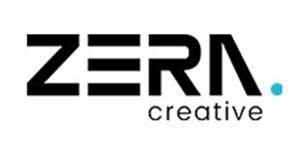Google values trustworthy content because it aims to provide users with reliable and accurate information. Trustworthy content helps build credibility and encourages users to spend more time on your site. This guide will show you why trustworthy content is important and how you can create it for your website.
Understanding Google’s Emphasis on Trustworthy Content
Google places a high value on trustworthy content because its goal is to provide users with the most accurate and reliable information. By prioritizing trustworthy content, Google ensures a better user experience, increases user satisfaction, and builds trust with its audience.
Maintaining and Updating Your Content
Keeping your content current is essential for building trust with both Google and your audience. Regularly updating your content ensures that the information remains relevant and accurate. This involves reviewing old posts, adding new insights, and correcting any outdated details.
This not only helps improve your search rankings but also keeps your readers engaged and coming back for more. Regular updates show that you care about providing high-quality and trustworthy content, which is crucial for building and maintaining credibility online.
Benefits of Trustworthy Content for SEO
Creating trustworthy content is a cornerstone of effective SEO. When content is reliable, accurate, and well-researched, it not only builds trust with your audience but also improves your site’s performance in search engine rankings.
Improved Search Engine Rankings
Trustworthy content helps improve your search engine rankings by meeting Google’s criteria for quality and relevance. Search engines prioritize content that is accurate, well-researched, and provides real value to users.
Increased Authority and Credibility
When you consistently produce reliable and high-quality content, your website gains authority and credibility. Search engines recognize authoritative sites as valuable resources and are more likely to rank them higher.
More Quality Backlinks
Trustworthy content attracts backlinks from other reputable websites. High-quality content serves as a valuable resource that other sites want to reference or link to, which boosts your site’s authority and improves its SEO.
Enhanced User Engagement
Content that is both trustworthy and engaging keeps users on your site longer and encourages them to explore more pages. High-quality content meets users’ needs and answers their questions effectively, which reduces bounce rates and increases time spent on your site.
Better Conversion Rates
When users find reliable and useful information on your site, they are more likely to take desired actions, such as signing up for newsletters, making purchases, or requesting more information.
Incorporating trustworthy content into your SEO strategy is essential for achieving long-term success.
Conclusion
Creating trustworthy content is key to gaining the trust of both Google and your audience. By focusing on accuracy, transparency, and quality, you can improve your website’s ranking and attract more visitors. Keep updating your content to maintain its relevance and reliability.
FAQs
Q: Why does Google prioritize trustworthy content?
Google prioritizes trustworthy content because it wants to give users the best possible information. Trustworthy content ensures that users find accurate and reliable information, which keeps them coming back to Google for answers.
Q: How can I make my content more trustworthy?
To make your content more trustworthy, ensure it is accurate, well-researched, and free of errors. Use credible sources and provide citations when necessary. Also, be transparent about your sources and intentions.
Q: What role do backlinks play in building trustworthy content?
Backlinks from reputable websites can help make your content appear more trustworthy. When other reliable sites link to your content, it signals to Google that your information is valuable and credible.
Q: How often should I update my content to maintain its trustworthiness?
You should regularly review and update your content to ensure it remains accurate and relevant. Aim to check your content at least once a year, but update it more frequently if new information becomes available or if there are changes in your industry.







